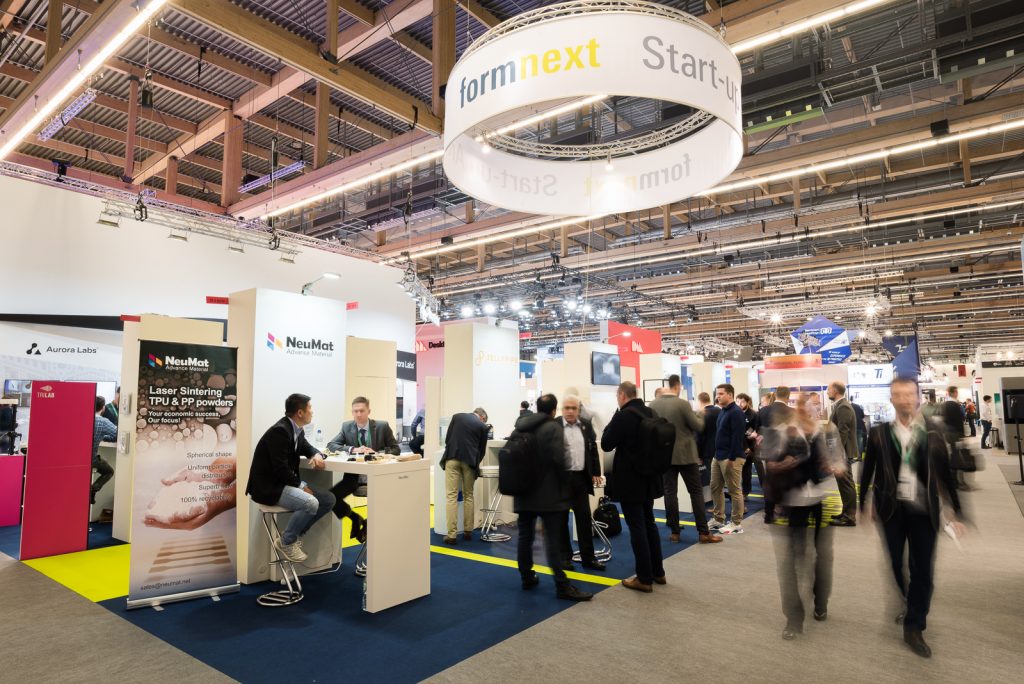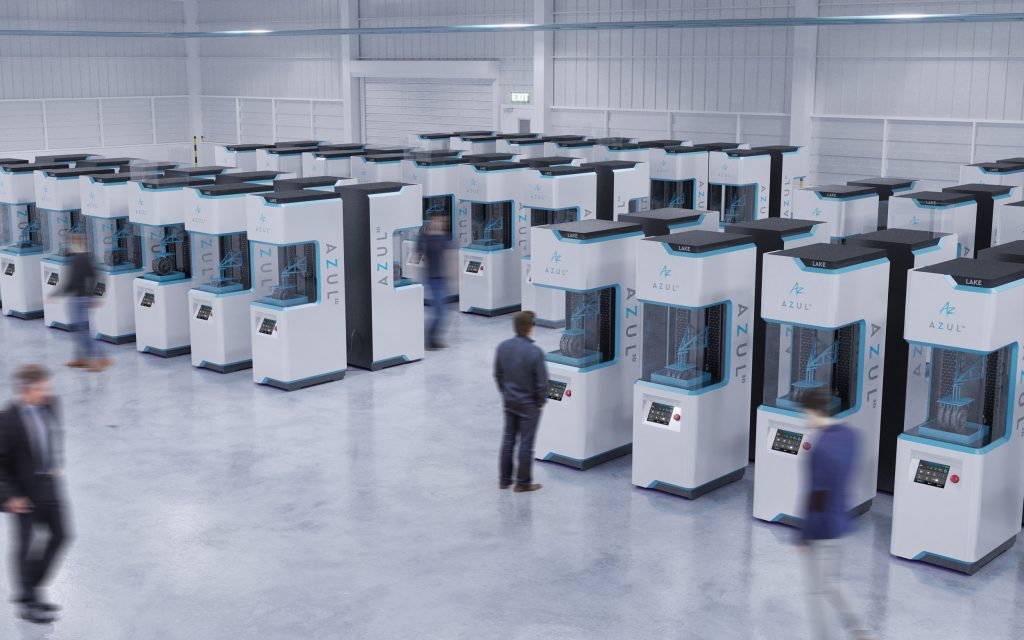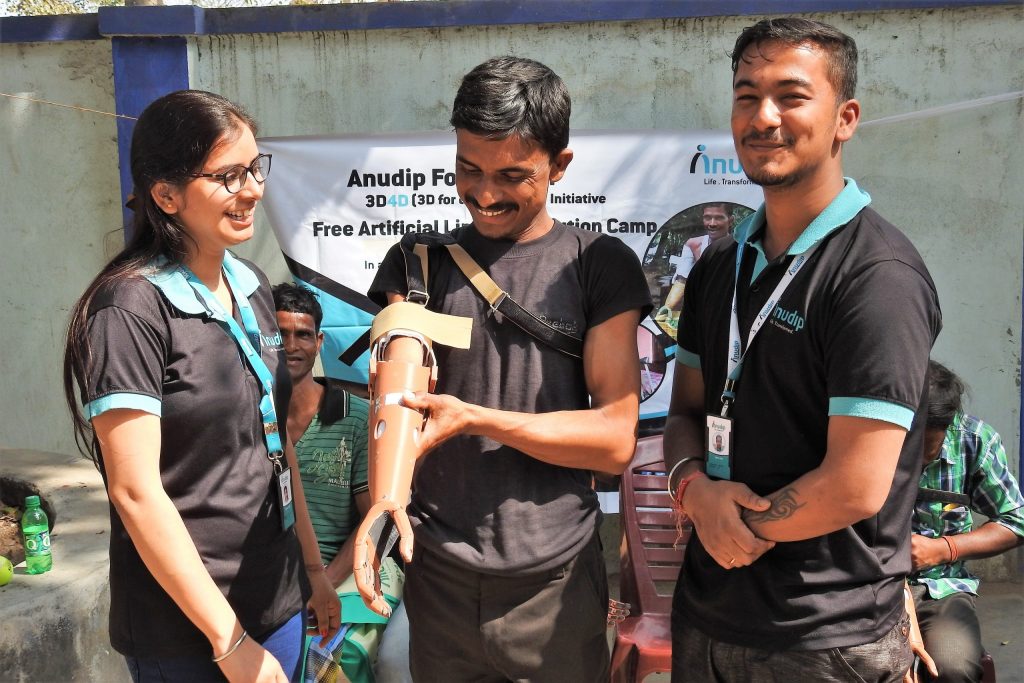The 2021 3D Printing Industry Awards shortlists are now open for voting until the 20th of October. Cast your votes here.
The winners of this year’s Formnext Start-up Challenge and AM Ventures Impact Award have been announced.
Following last year’s fully digital event, Formnext, Europe’s leading 3D printing trade show, will bring exhibitors back to Frankfurt between 16 – 19 November once more. And with it comes the seventh Formnext Start-up Challenge, which pits young additive manufacturing enterprises with less than five years of trading experience against each other based on their novel business ideas and technological achievements.
Similarly, the AM Ventures Impact Award recognizes the positive social and environmental impacts that additive manufacturing innovation can have. Open to all entrants of the Formnext Start-up Challenge, the AM Ventures Impact Award was presented for the second time this year.
Entrants were assessed by a jury panel of industry experts, which included 3D Printing Industry’s own Editor-in-Chief Michael Petch. The official awards ceremony is set to take place on November 16 on the AM4U stage at Formnext.

The five winners of the Formnext Start-up Challenge 2021
In no particular order, the first of the winners is Danish start-up Atlant 3D Nanosystems. The firm is developing a platform for 3D printing micro and nanoscale multi-material parts with atomic-level dimensional precisions. Atlant 3D’s Nanofabricator 1 and 2 systems can simultaneously process up to six different materials and produce parts up to 150mm in diameter. Additionally, the company developed its Nanofabricator LiteTM under strict NASA specifications and successfully tested the printer in zero gravity conditions. The technology has already been utilized for applications in both academia and industrial research and development.
Based in the US, Azul 3D is the company behind the High Area Rapid Printing (HARP) additive manufacturing technology. Known for its combination of speed, precision, and large part potential, the resin-based 3D printing platform sees oil flowing between the resin material and the UV light source. This enables a form of non-adhesive production at significantly higher print speeds than most current SLA 3D printing systems.
Nobula, a start-up based in Sweden, has developed a novel desktop 3D printer capable of producing parts made of glass. Designed to be fast, affordable, and energy-efficient, both the glass 3D printer and the printing material technology are currently patent-pending. Nobula intends to use its platform to 3D print glass components for academic, R&D, and end-use production applications.
Fited has developed a new 3D printed medical device for treating spinal deformities. Described as ‘Invisalign for the spine’, the company’s patient-specific 3D printed braces are designed to replace conventional hand-made scoliosis braces, which are often costly and time-consuming to produce. The devices are expected to eliminate the need for additional surgery in up to 72% of cases while being lightweight and breathable. Initially targeting the US and Europe, Fited sees huge potential for its 3D printed spinal braces, seeing as 4% of the world’s population suffers from some kind of spinal deformity.
The last of the winners is US-based start-up Print Parts Inc. The company has developed a digital signature technology that can make 3D printed parts scannable, serialized, and cloud-connected. It works by embedding programmable nanoparticles in 3D printing materials or components, which can then be detected and registered using smart scanners. The histories of the scanned parts can be stored on the firm’s SmartParts platform, which comprises build management, authentication, and part tracing functionality. It’s also integrable with existing MES/ERP systems.

The winner of the AM Ventures Impact Award 2021
Presented as part of the Formnext Start-up Challenge, over two-thirds of the start-up entries also competed for the Impact Award.
The winner of this year’s AM Ventures Impact Award is Vispala Technologies. Based in India, the medical device manufacturer has been using additive manufacturing to produce affordable and aesthetic prosthetics, orthotics, and assistive robots for those in need since 2018. The kicker here is that Vispala focuses on helping people in developing countries and rural areas, where access to state-of-the-art healthcare tends to be limited.

Subscribe to the 3D Printing Industry newsletter for the latest news in additive manufacturing. You can also stay connected by following us on Twitter, liking us on Facebook, and tuning into the 3D Printing Industry YouTube Channel.
Looking for a career in additive manufacturing? Visit 3D Printing Jobs for a selection of roles in the industry.
Featured image shows the Formnext Start-up Challenge in Frankfurt. Photo via Mesago/Matthias Kutt.


